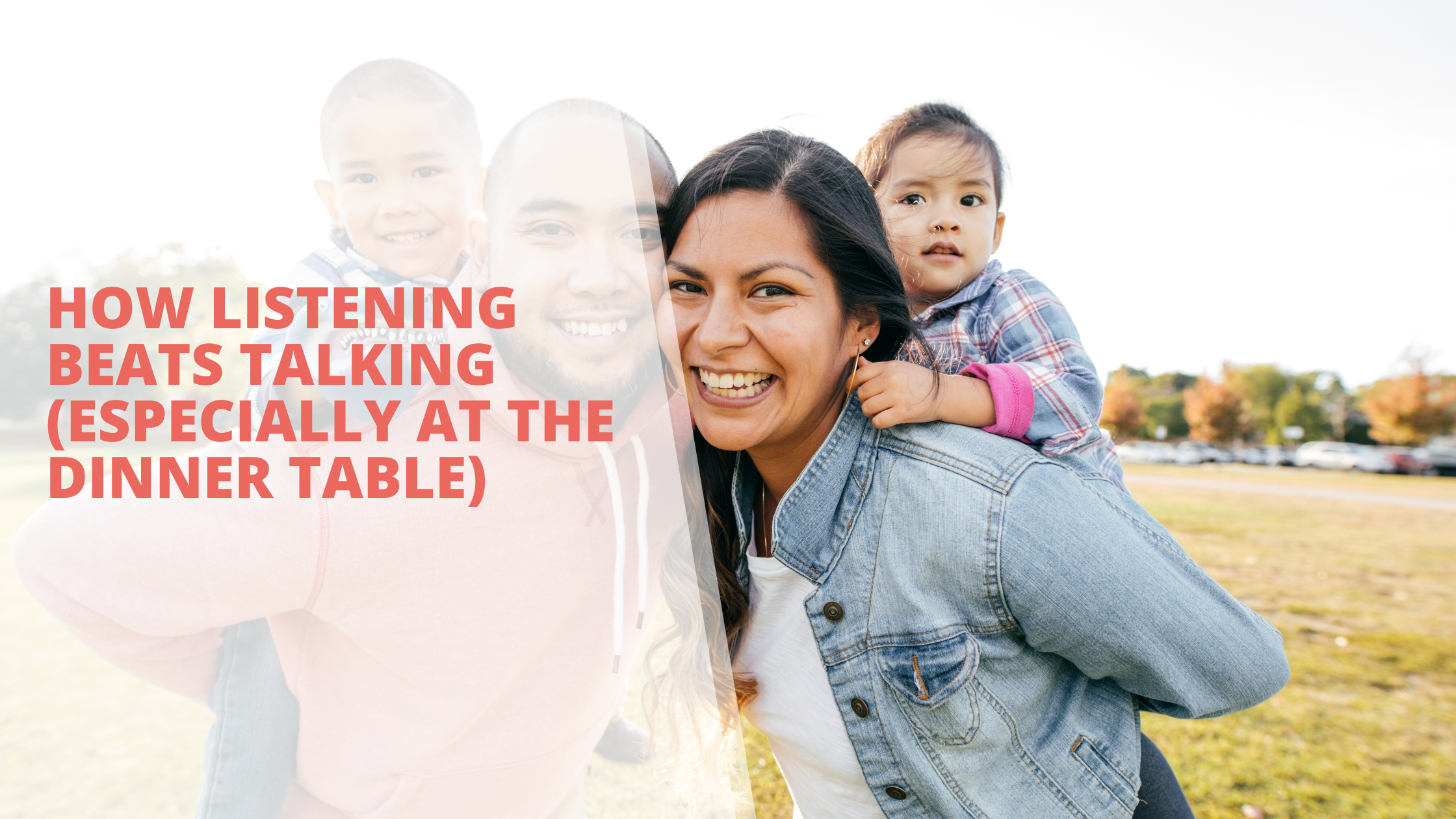
“If you’re talking, you’re not learning. If you’re listening, everyone’s growing.”
Why listening > talking (and why dinner helps)
We all love a good yarn; some of us really love it (guilty). But when it comes to kids feeling safe, seen and supported, listening beats talking every time. Quality mealtime conversations are linked with better mental health, resilience and social outcomes for children and teens; it’s the conversation, not the casserole that does the heavy lifting.
In fact, regular family meals are associated with healthier diets, fewer risky behaviours and better wellbeing benefits researchers have observed across decades. Meals are simply a reliable container for connection, and listening is the ingredient that makes the recipe work.
What listening actually does (in human language)
- Signals “You matter.” When kids feel heard, their self-esteem and sense of worth rise; especially for little ones who understand language before they can fully speak it. Read more at betterhealth.vic.gov.au
- Strengthens relationships. Across settings: from families to couples to customer service, active, attentive listening is linked to greater satisfaction and trust. (Apparently it even increases tip size, which is adorable, but not why we do it.)
- Builds skills over time. Australian guidance shows active listening helps kids open up and improves communication through the tricky tween and teen years. Read more at Raising Children Network
“Dinner is the only meeting where minutes are optional and listening is mandatory.”
“Okay, but what do I do at the table?”
Here’s a simple way to make listening the star of the show using our Back at the Table flow:
1) Warm-up
Ask one low-pressure, open question (our app gives you one).
Your job: paraphrase once before replying.
- Child: “My teacher changed the seating plan.”
- You: “So you’re in a new spot – how’s that feel?” (Pause. Wait. Resist fixing.)
2) Go a layer deeper
Use the two-beat rule: when your child finishes, count one, two in your head before you speak. It’s classic active-listening: attention, reflection, curiosity. Evidence shows this style increases perceived empathy and helpfulness, seven in tricky conversations. Read more at ScienceDirect
Try these listening stems:
- “Sounds like…”
- “What was the best/worst/weirdest part?”
- “If you could replay that bit, what would you try?”
3) Close with connection
End with appreciation or a micro-celebration: “Thanks for telling me that,” or “Love hearing your thinking.” Regular, warm conversations buffer stress and support wellbeing over time. Read more at PMC
Common listening “speed bumps” (and friendly detours)
- The Fix-It Reflex: You hear a problem; your brain grabs a toolbox. Detour: reflect first, then ask, “Want ideas or just ears?”
- The Cross-Exam: Rapid-fire questions can feel like a courtroom. Detour: one open question, then reflect.
- The Monologue: Accidentally delivering a TED talk? Detour: set a 60-second “share cap,” then hand the mic back.
“Ask, reflect, repeat. Advice is the last 10%—not the first.”
“Does listening still matter if my teen shrugs at everything?”
Yep. Consistency wins. Studies show that even when kids aren’t chatty, predictable opportunities to talk (like dinner) protect against some of the rough stuff: think stress, risky behaviours, even the sting of online nastiness, because kids know there’s a safe place to bring it.
Quick wins you can try tonight
- Phones in a basket. Connection hates competition. (Yes, ours too.)
- One mic at a time. Pass a spoon around; only the spoon-holder talks. Everyone else listens.
- Swap roles. Let your child ask the questions; you answer. It builds agency and shows you’re genuinely curious.
- The 5-second sip. When someone finishes, everyone takes a sip of water, no one jumps in with advice. (Hydration = hesitation.)
- Name the feeling, not the fix. “That sounds frustrating,” lands better than “Here’s what you should do.”
A gentle word to us grown-ups
If this feels new, you’re not alone. Many Aussie families say the tricky conversations are the ones they avoid, often because we weren’t taught how to have them. That’s why we start small, keep it regular, and practise listening like a skill (because it is). Have read of this News.com.au
Try it with Back at the Table tonight
Open Back at the Table, pick an Entrée/Main/Dessert set, and make listening your superpower. If you want, set a “no advice until dessert” rule and see what happens. Spoiler: more smiles, fewer speeches.

